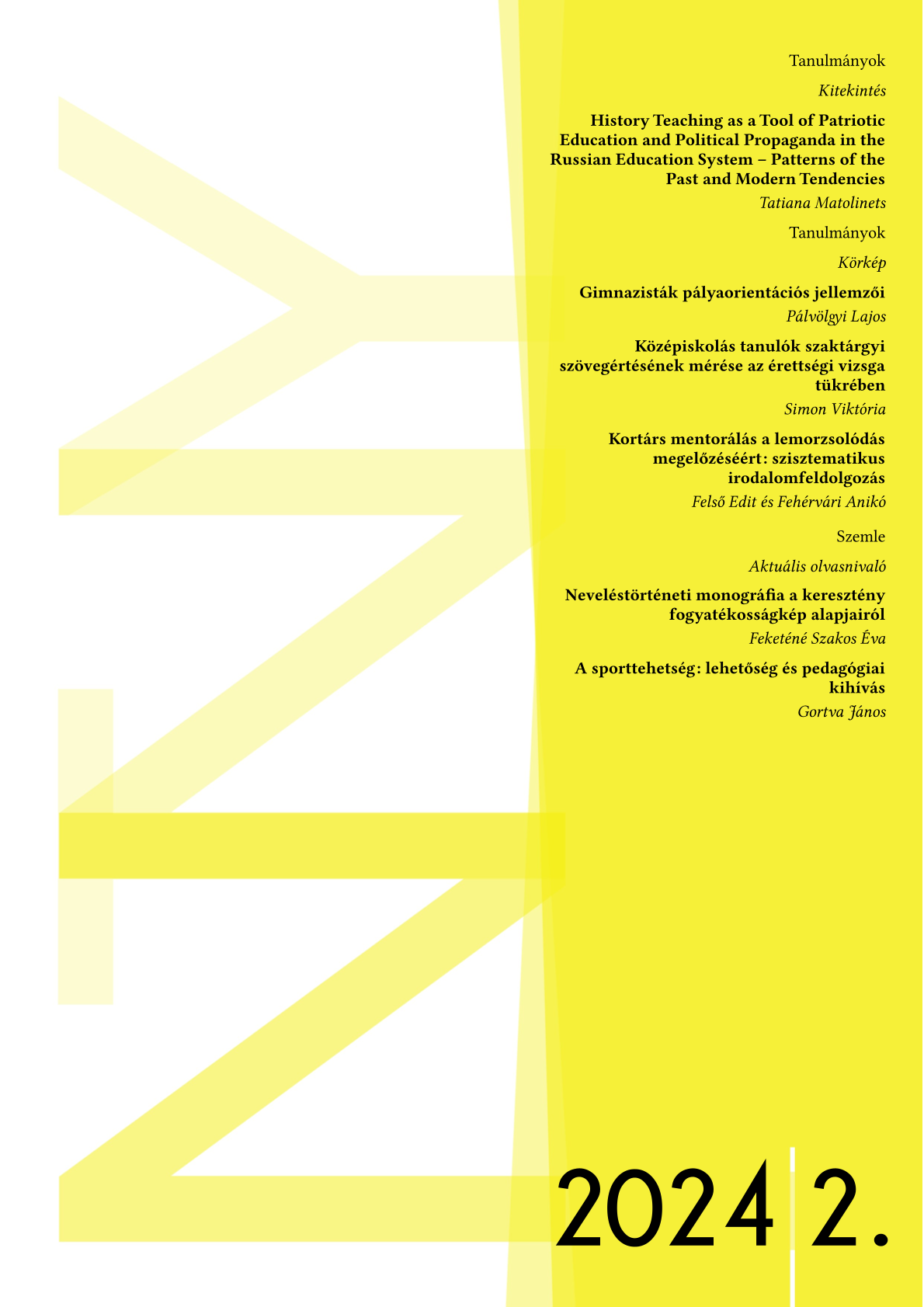Abstract
This study focuses on the impacts of peer mentoring programmes as prevention and intervention tools on reducing dropout rates in higher education and early school leaving. The aim of this paper is to present the characteristics, objectives and effectiveness of international peer mentoring programmes. The qualitative data collection and analysis is based on a descriptive research design and content analysis of 12 empirical studies. The systematic search was conducted in EBSCO Education Research Complete module, in addition in ResearchGate and Google Scholar databases for English language empirical studies on peer mentoring models published in journals between 2008 and 2023. Based on the results of the analysis, the objectives, achievements, and challenges of mentoring programmes in higher education and public education settings are presented. The findings of this study demonstrate a positive impact of peer mentoring programmes on reducing early school leaving, increasing academic achievement, institutional and academic commitment, and the improvement of social and individual skills and abilities. Gaining a better perspective and understanding of the operation of these programmes can contribute to the success and efficacy of future mentoring programmes.

